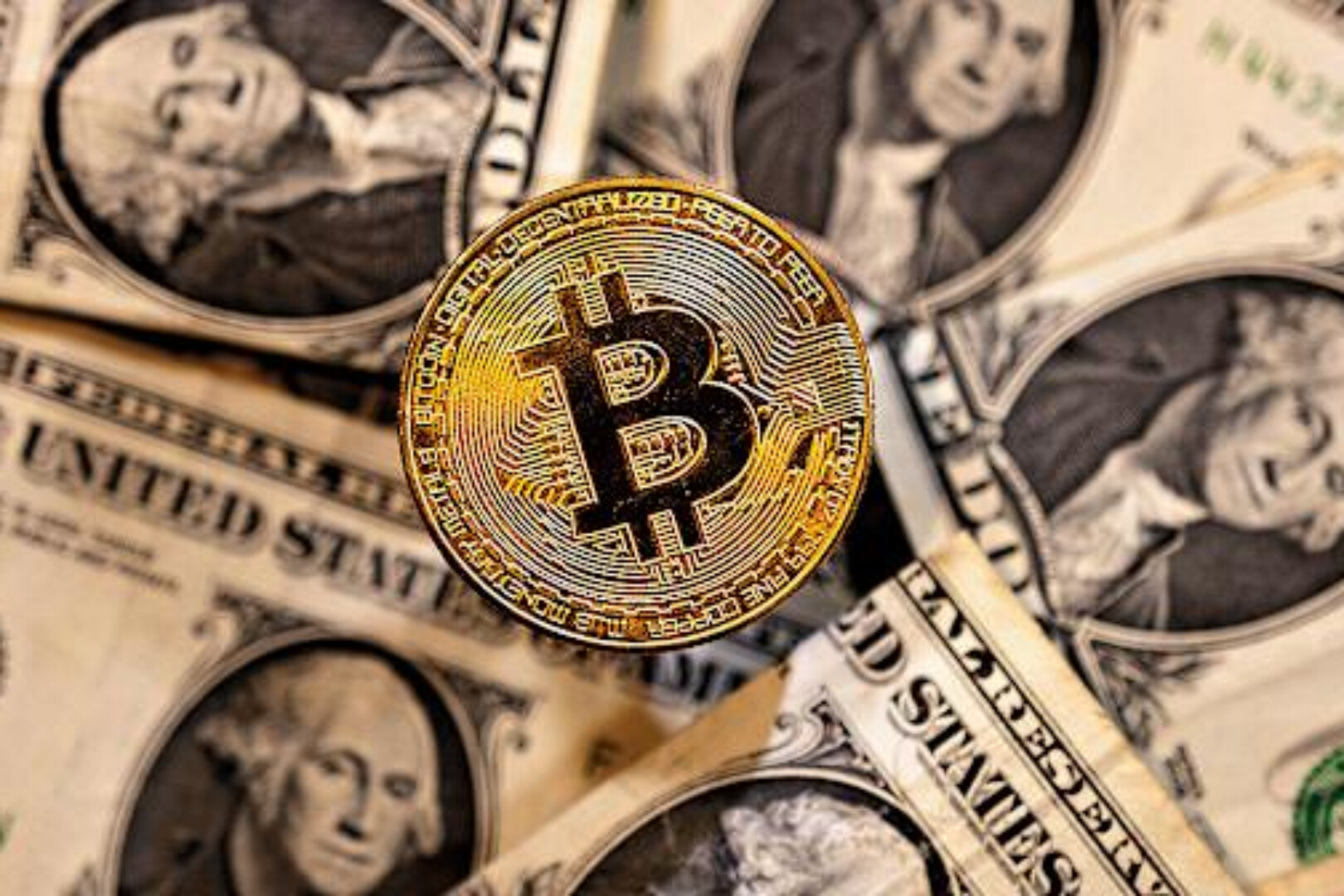Original author:Matt Levine,Bloomberg
Original title: Silvergate Had a Crypto Bank Run
Original compilation: Leo, BlockBeats
Recently, Silvergate Capital Corporation, the holding company of the encryption-friendly bank Silvergate Bank, announced that it will postpone the submission of the annual 10-K report for fiscal year 2022. Silvergate stated that "the company is currently analyzing certain regulatory inquiries and investigations related to the company." Subsequently, in the encryption market, many encryption companies and encryption trading platforms, including Coinbase, Circle, Tether, and Galaxy Digital, have distanced themselves from it; while in the capital market, Silvergate’s U.S. stocks plummeted last night. Matt Levine, a reporter in the Bloomberg encryption field, wrote an article about Silvergate's "bank run" and analyzed the reasons. BlockBeats compiled it as follows:
first level title
Silvergate's strong ties to encryption
The basic way to buy cryptocurrencies is through USD, sell cryptocurrencies using USD, and of course there are other channels? But the main thing is that if you're bullish on BTC, you'll spend some dollars buying a portion of BTC, and as it goes up (or down), you'll sell it for dollars.
If you're deeply into cryptocurrencies, or if you're an institutional crypto trader, you do it on a regular basis, you may find yourself feeling pretty helpless when it comes to dollar flow. Cryptocurrency transactions around the world are 24/7. You can use smart contracts to automatically send encrypted assets. Sending encrypted assets is usually a permissionless and loosely regulated activity. But if you want to buy cryptocurrency with USD, you need to use the USD financial system, which may make crypto natives uncomfortable, you may need to transfer money through a bank, but banks are not open 24/7, if you try to buy crypto through a bank account transfer Currency, some of these banks may ask you boring questions.
Solutions exist of course, one solution is to deposit your USD with a large trustworthy crypto exchange and then use the USD in your exchange account to buy and sell cryptocurrencies, the exchange holds large amounts of USD for its clients and cryptocurrencies. When you buy cryptocurrencies, the exchange debits some dollars from your account and adds some cryptocurrencies to your account; when you sell, it does the opposite. There are problems with this solution, the biggest one being that sometimes the big trusted crypto exchanges are not like that and they lose or steal your assets; Deposit the assets somewhere, it needs to deposit the customer's dollars in some crypto-friendly bank, so that it can be returned when the need arises.
Another solution is stablecoins: Instead of keeping dollars in a bank, you can convert them into cryptocurrencies by buying a dollar-pegged stablecoin, which is usually worth $1, and then you can use the dollar-denominated Stablecoins buy and sell cryptocurrencies. But when you take this approach, you must also trust the stablecoin issuer, which is not a stable and friendly way (for example, there are risks in calculating stability), and the stablecoin issuer needs to put the money somewhere, so in this , again a crypto-friendly bank is needed.
One more solution is bank fraud, don't do it.
To sum up, the industry needs an encryption-friendly bank, and for large-scale encryption trading platforms and traders in the United States, this bank is usually Silvergate Bank, which is controlled by Silvergate Capital Corp. - a bank that is very friendly to encryption and not only accepts encryption The trading platform and traders' deposits have also established their own encryption settlement payment network for cryptocurrency settlement. Through the "payment network", if you and I both have an account at Silvergate and I want to buy some BTC from you in USD, we can debit USD from my account and add it to yours through Silvergate's payment network account to complete the dollar portion of the transaction. The following is Silvergate's description of its exchange network SEN (Silvergate Exchange Network):
We designed SEN as a network for cryptocurrency exchanges and investors, enabling dollars to flow efficiently between SEN participants 24/7. In this regard, SEN is arguably the first encryption infrastructure solution.
The core function of the SEN is to allow participants to transfer USD from their SEN account to another participant's SEN account on their counterparty, and to view transfers of funds received from their SEN counterparty. Counterparty relationships between parties to cryptocurrency transactions are established on SEN to facilitate transfers of U.S. dollars in connection with such transactions.
This method of transferring dollars via bank is very popular with crypto investors: it's 24/7, cloud-based API, under the umbrella of crypto trading platforms, etc.
first level title
Silvergate's business model
So, this feature of Silvergate attracts a lot of crypto assets, if you are a crypto trading platform or a crypto trading company, you will find it attractive to deposit money in Silvergate because, they are very friendly to you and like crypto currency, which a lot of other banks aren't; they can send money to your crypto counterparty at 2am on a Saturday, which many other banks can't; they're a real bank, overseen by US banking regulators, publicly Audited financial statements and capital regulation to prevent the loss of your funds is definitely not the case with many crypto exchanges and stablecoin issuers.
This suggests a very simple "narrow banking" business model for Silvergate:
- Attracts a lot of deposits from crypto trading platforms and investors who really need a friendly bank and don't pay interest.
- Invest your savings in very safe assets, US Treasuries and Federal Reserve reserves, because you have cheap deposit money and don't need to take a lot of risk to get great returns.
In reality, everyone takes a little more risk than that, and the obvious risk for Silvergate from the asset side of the balance sheet is the allure of crypto-backed lending: its customers (crypto traders and trading platforms) have a lot of BTC, they may have to pay high interest rates if they want to borrow USD, Silvergate has a lot of USD (from its customers), it's just a natural fit. Does Silvergate do this:
Our SEN leveraged product enables our crypto clients to borrow USD directly from banks to provide liquidity to support BTC trading activities using BTC as collateral for these loans, we call it SEN Leveraged Direct Lending. In the SEN leveraged direct lending structure, the cryptocurrency service provider acts as a custodian to hold the borrower's BTC, and the bank uses SEN to deposit the loan directly into the borrower's account on the trading platform; in addition, the bank also provides crypto industry companies with the following BTC-backed loans for company funds and other businesses, we call it SEN leveraged indirect lending. In an indirect lending structure, the lender uses BTC to secure a loan from the bank, and the loan financing and collateral liquidation may or may not be through the SEN.
A more uninteresting risk for Silvergate is conventional old interest rate risk. Silvergate can buy other relatively safe assets, such as Treasury bills, U.S. agency securities, mortgage-backed securities, municipal bonds, for higher yields, rather than park customers' money in the Federal Reserve or in one-month Treasury bills. This appears to be the main risk for Silvergate. As of September 30, 2022, the company's balance sheet showed approximately $11.4 billion in "securities," or bonds: municipal bonds, mortgage-backed securities, agency and treasury bonds. Meanwhile, there are roughly $1.4 billion in “loans,” or $300 million in BTC loans plus some real estate loans.
first level title
The crypto woes of Silvergate
Something bad happened in the fourth quarter of 2022, as reported by Bloomberg's Max Reyes:
For months, U.S. authorities have been scrambling to sever ties between banks and high-risk crypto businesses, fearing that the financial system could one day suffer severe losses. They are belated.
Silvergate Capital Corp. said Wednesday that it needs more time to assess the extent of the damage to its finances from last year's crypto winter, including whether it can continue to survive. The stock plunged about 30% in premarket trading on Thursday.
Silvergate has reported a loss of $1 billion in the fourth quarter and said that figure could be higher. The company is still calculating the cost of selling assets quickly to pay down federal home loan banking system advances, and it may also need to reduce the value of some remaining assets.
That could lead to "undercapitalization," La Jolla, Calif.-based Silvergate wrote in a regulatory filing. "The company is evaluating the impact of these subsequent events on its ability to continue as a going concern."
This is from the documentation, the problem is:
-Silvergate holds a large number of crypto deposits: as of the end of September, there were $13.2 billion in deposits, most of which were non-interest bearing.
- Then, crypto crashes, crypto investors get their money back from exchanges, and exchanges get their money back from Silvergate. Non-interest-bearing deposits fell to $3.9 billion from $12 billion at the end of December.
-Silvergate needs to come up with approximately $8 billion in cash to cover these withdrawals.
Silvergate obtained some of the cash by borrowing $4.3 billion from the Federal Home Loan Bank of San Francisco, a government-chartered agency that makes short-term guaranteed loans to cash-hungry banks. In late 2022 and early 2023, it is mostly crypto banks that are borrowing at FHLB, and their borrowings have caused controversy.
Silvergate got the rest of the money by selling a portfolio of bonds: At the end of September, it had $11.4 billion in bonds, of which $8.3 billion was "available for sale" (an accounting term that means Silvergate has to sell it at fair value on its books). markup), other bonds are "held to maturity" (meaning Silvergate can be marked up at cost without worrying about changes in market value), and as of the end of December, the company had just $5.7 billion in bonds, all of which were available for sale, Everything else is sold.
This caused problems, as the bonds were worth less than what Silvergate paid for them, basically because interest rates rose sharply in 2022, meaning a loss on the Silvergate sale:
In order to accommodate persistently low deposit levels and maintain a highly liquid balance sheet, Silvergate sold $5.2 billion in bonds as cash proceeds in Q4 2022, which also resulted in a loss of $751.4 million in securities sales in Q4 2022.
This means that Silvergate has to recognize losses on the bonds it holds, as it has been holding some of them to maturity (without recognizing losses), and now the company has to account for them as available-for-sale assets: "Additionally , the company recorded a $134.5 million impairment charge and expects to sell $1.7 billion in securities in the first quarter of 2023 to reduce borrowings."
BTC loans hold up well, but that's beside the point. The result was a net loss of $1.05 billion for Silvergate in the fourth quarter.
A central feature of banking regulation is capital requirements. If you're a bank and you deposit $100, make $100 loans, and one of the loans defaults and you only get $98 back, then you don't have enough money to pay back all the depositors, which is pretty bad. What the regulator does is require that a bank that makes a $100 loan must fund those loans with a maximum of $92 in deposits, and the other $8 must come from the bank's shareholders. Then if some loans default and the bank only gets back $98, then it can pay back all the $92 deposits and only the shareholders are losing money.
Capital requirements are mostly "risk-based": for every $100 of "risk-weighted assets" there must be about $8 in capital, with different assets having different risk weights. A bank that makes a lot of reasonable mortgages and business loans might need $8 in capital for every $100 in loans, while a bank that holds a lot of BTC might need $100 in capital for every $100 in assets. Very safe assets - such as U.S. Treasuries - have a risk weight of zero: they are so safe that regulators don't worry about you losing money on Treasuries.
However, there is an underpinning to this rule, which is called "leverage ratio". Basically, a bank needs to have at least $5 in capital for every $100 in assets to be called "well capitalized," regardless of the risk weight of those assets. If you're a small bank with only $95 in deposits in US Treasuries, you also need to put $5 of your own into it.
Silvergate assets
Holding BTC loans, Silvergate's assets are still very safe: they are mainly composed of high-grade bonds and are likely to be repaid in full. As of September, the situation in Silvergate is:
$15.5 billion in assets;
$14.1 billion in liabilities;
$1.3 billion in shareholder equity (approximately 8.6% of assets);
Regulatory leverage ratio of 10.7%;
The total risk-to-capital ratio is 45.5%, as its substantial holdings have a risk weight of zero.
A capital ratio of 45.5% looks pretty safe, and a leverage ratio of 10.7% looks pretty good too. But then Silvergate lost a lot of deposits and had to sell assets for a net loss of $1 billion. The rest is:
$11.4 billion in assets;
$10.8 billion in liabilities;
Shareholders' equity of $571.8 million (approximately 5.0% of assets);
Regulatory leverage is around 5.1%;
The total venture capital ratio is 57%.
A capital ratio of 57% looks pretty safe. A leverage ratio of 5.1% may seem slightly higher than the 5% regulatory requirement to be "well-capitalized," but if Silvergate had only lost an additional $19 million, it would be less than 5%.
From yesterday's Silvergate document:
After December 31, 2022, circumstances occurred that would have negatively impacted the timing and unaudited results previously reported in the earnings report, including the sale of additional investment securities beyond prior expectations and disclosed in the earnings release, Primarily for the full repayment of the company's outstanding advance payment from the Federal Home Loan Bank of San Francisco. The company sold additional debt securities in January and February 2023, which are expected to be recorded as losses other than the temporary impairment of the portfolio of securities. These additional losses will have a negative impact on Silvergate Bank's regulatory capital ratio and could result in undercapitalization of the company and the bank. In addition, the company is evaluating the impact of these subsequent events on its ability to continue as a going concern within twelve months of the publication of its financial statements. The company is currently re-evaluating its business and strategy in light of current business and regulatory challenges.
Silvergate had to sell more bonds to repay the FHLB loan, so it took more losses, so those are closely related, but it appears to be less than 5% leveraged now, so "well capitalized ". Technically, it's not the "end of the world" yet, and Silvergate would still be "well capitalized" if the number was higher than 4%, but that's not good, and it points in the wrong direction.
If you have a bank, you don't want to go in the wrong direction.
Investors and business partners pulled out, sending shares down as much as 55%, while Coinbase Global Inc., Galaxy Digital Holdings Ltd., Paxos Trust Co. and other crypto firms decided to stop accepting or initiating payments through Silvergate, outflows that could threaten The bank's main source of deposits and a platform for crypto participants to transfer funds to each other.
Over the past year, we've talked a lot about crypto-related bank crashes. Usually, when a crypto-related bank fails, executives say it's a "bank run": it has valuable assets, but customers want their money back right away, so it has to sell them, so they lose value , so it doesn't have enough money to reimburse all customers. I have always been skeptical of these claims, because in general, these valuable assets are like the "magic beans" invented by crypto-related banks themselves. Crypto-related bank assets — like Terra, FTX, Celsius, etc. — are mostly confidence in shadow banking itself, and when that confidence disappears, so do those assets.
first level title
The Spread of Traditional Finance to Crypto
Meanwhile, in the de facto regulated U.S. banking sector, the idea of a "run" is a bit of an oddity. The bank run happened in the "It'sa Wonderful Life" movie, but in the real world of the big US banks, this particular situation - you hear some bad news about your deposit bank, you rush to withdraw money, and the bank has to It is strange to sell assets to obtain funds, and end up insolvent. In modern American banking, there is deposit insurance to appease small depositors. There are programs -- the Federal Home Loan Bank, the Fed's discount window -- designed to ensure that solvent banks get cash to pay depositors. There is also capital and prudential regulation designed to ensure the solvency of banks.
But Silvergate is going through a real run! It has lost money not by doing stupid BTC loans - BTC loans are fine, but by doing normal banking, borrowing short and lending long (taking deposits from crypto companies, buying US Treasuries and munis). Silvergate's assets are normal assets, and if depositors leave their money in Silvergate, its bonds will mature with enough money to pay them back. Instead, depositors demanded their money back in one fell swoop, and Silvergate had to sell its long-term assets at huge losses to pay it back.
Today's story is that Silvergate customers are withdrawing money because they are concerned about Silvergate, "out of an abundance of caution given recent developments," a typical bank run, but that's not what they're doing in late 2022 (when the troubles started) ) reason for withdrawal. They Withdraw Their Money Because Cryptocurrencies Are Crashed: Silvergate's Cryptocurrency Trading Platform Customers Are Faced With Customer Withdrawals So They Take Their Money Out Of Silvergate. The client - the crypto trading platform - is the problem, not Silvergate.
Just last week, U.S. regulators warned banks:
The Board of Governors of the Federal Reserve, the FDIC, and the Office of the Comptroller of the Currency (collectively, the Agencies) have issued a statement regarding the liquidity risk posed by certain funding sources of crypto-asset-related entities, and some effective practices for managing such risk:
A deposit made by a crypto-asset-related entity for the benefit of a client (end customer) of the crypto-asset-related entity. The stability of such deposits may be driven by end-customer behavior or crypto-asset industry dynamics, and not just by the crypto-asset-related entity itself, which is the banking organization's direct counterparty. The stability of deposits may be affected by, for example, periods of stress, market volatility, and related vulnerabilities in the crypto asset sector, which may or may not be unique to crypto asset related entities. Such deposits are vulnerable to large and rapid inflows and outflows as end customers react to market events, media coverage and uncertainty related to the crypto asset industry. This uncertainty and the resulting volatility of deposits could be exacerbated by inaccurate or misleading representations of deposit insurance by crypto-asset-related entities that can cause confusion for end customers.
I think it's contagion from the crypto crash to the real financial system: a regulated US bank worried about "its ability to continue as a going concern" is dumping US Treasuries, munis, and mortgage-backed securities to pay down debt. It's a small contagion: that bank is the equivalent of a crypto bank (I don't think), say, because Silvergate has to sell billions of dollars in bonds, and your mortgage rate gets a huge boost. But this is certainly the kind of contagion that regulators want to stop, but now they have clear evidence that contagion is real.





